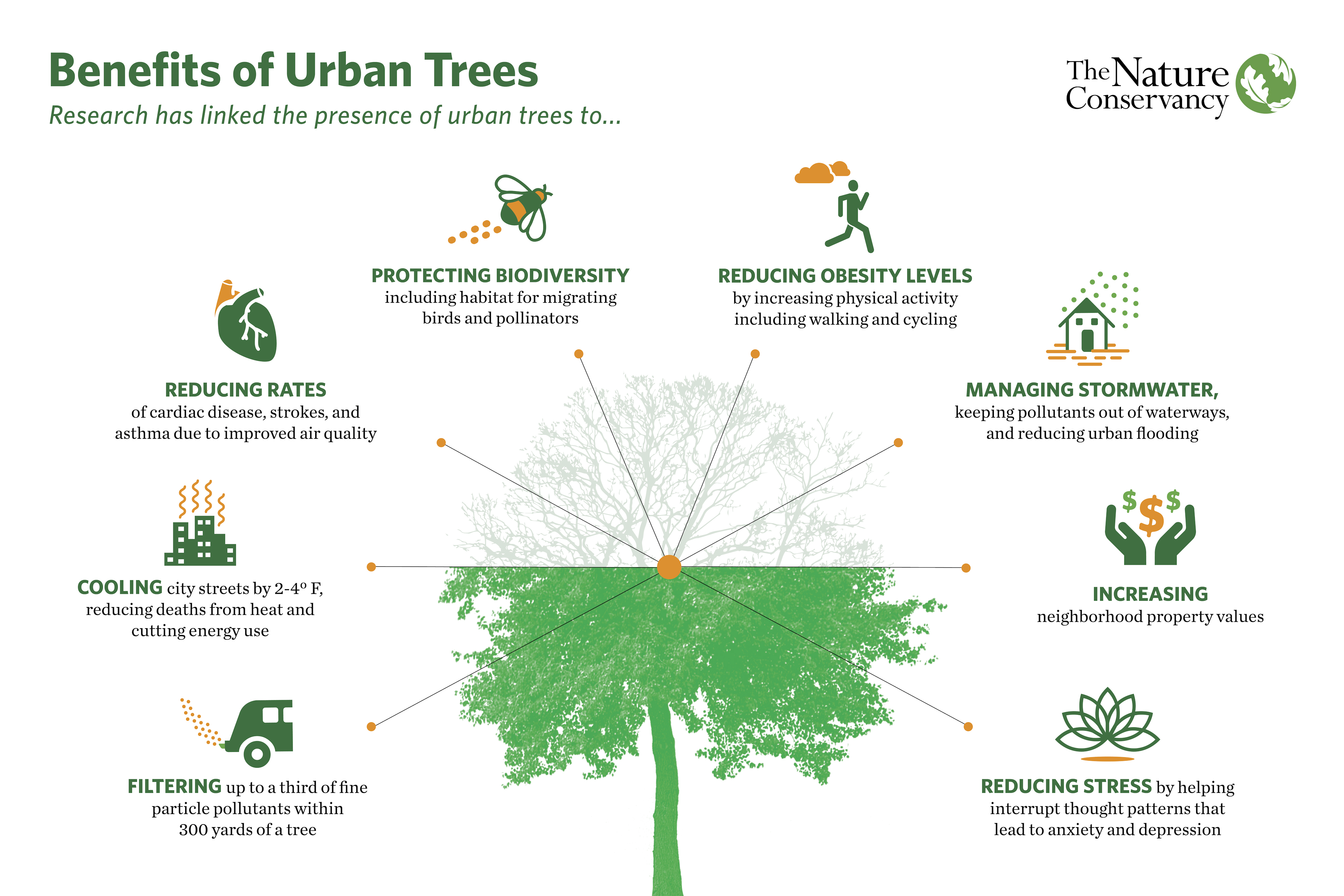
Economic benefits of urban forests include:
• Trees help attract tourists and businesses by creating an inviting place to stay.
• Trees help retain shoppers longer in retail areas.
• Trees increase the property value of homes, businesses and industrial properties.
• Trees help increase occupancy rates in apartment complexes.
• Trees reduce the amount of energy needed to heat and air-condition buildings.
• Trees shade roadways, which reduces infrastructure costs for road maintenance.
Environmental benefits of urban forests include:
• Trees remove carbon dioxide from the air and release oxygen.
• Trees decrease the "heat island" effect by creating shade and lowering air temperature.
• Trees reduce erosion and stormwater runoff, and act as a natural filter to prevent pollutants from washing into waterways.
• Trees improve drinking water.
• Trees provide food and habitat for wildlife.
Social benefits of urban forests include:
• Trees add character and pride to communities.
• Trees create feelings of relaxation and well-being.
• Trees promote a sense of community ownership.
• Trees increase social interactions and encourage activities that head to happier, healthier lives.
• Trees provide privacy, absorbing noise and screening harsh scenery.
• Trees help slow traffic, promote pedestrian traffic, and keep streets safe.
• Trees help reduce violence and crime in residential areas
Human health benefits of urban forests include:
• Trees in our communities help reduce obesity and other health problems.
• Trees outside hospital windows allow for faster healing times in hospital patients.
• Trees contribute to greater job satisfaction and productivity.
• Trees allow for better focus in students.
• Trees help reduce health care costs by filter pollutants, decreasing cases of asthma and heart attacks.
• Trees in communities help reduce stress and anxiety.